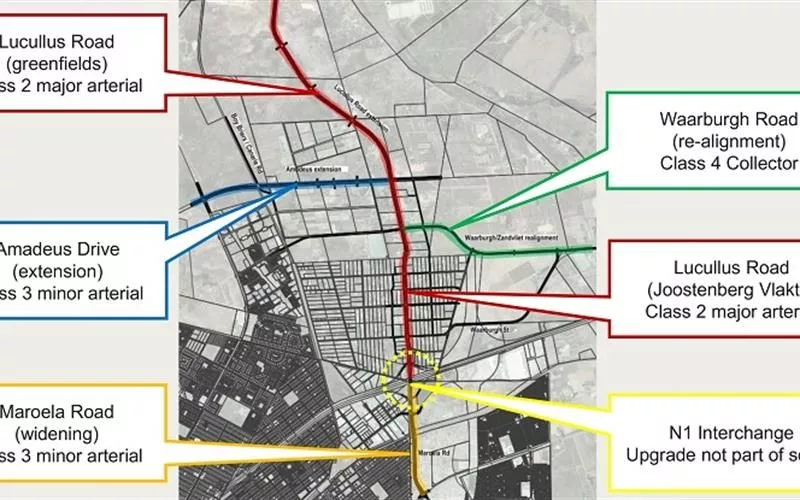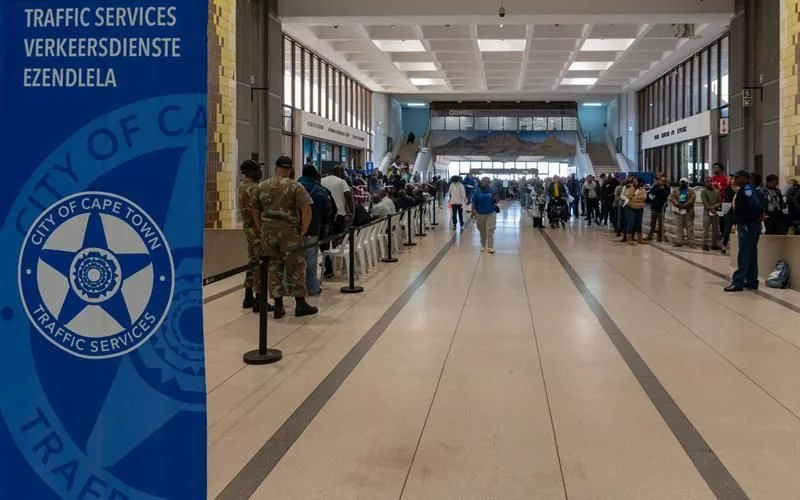Minister Sindisiwe Chikunga believes that the youth of South Africa are crucial for the country’s industrial growth and have enormous potential for the country’s welfare. She proposes specialized programs to tackle youth unemployment and foster innovation-led industrial strategies, including opportunities in green manufacturing, the ocean economy, agriculture, mining, and energy transitions. She calls for the establishment of an Action Plan and a Youth Unemployment Crisis Committee to ensure the proposed interventions are executed promptly. Minister Chikunga stresses the need for sincere evaluation and profound interventions, moving beyond surface-level alterations to the system, and establishing intelligent industrial towns and cities in strategic locations outside traditional urban centers.
Mobilizing the Youth for South Africa’s Industrial Evolution
Minister Sindisiwe Chikunga emphasizes the importance of the younger generation in South Africa’s industrial growth and highlights their enormous potential as a strategic advantage for the country’s welfare. She proposes specialized, sustained programs to tackle youth unemployment, support for budding industries, and fostering innovation-led industrial strategies. This includes exploiting the opportunities in green manufacturing, the ocean economy, agriculture, mining, and energy transitions. She calls for the formulation of an Action Plan and the establishment of a Youth Unemployment Crisis Committee to ensure the proposed interventions are pursued and executed promptly.
Youth: A Powerhouse for Progress
During the recent South African Youth Economic Council (SAYEC) 3rd Annual Jobs Imbizo and Corporate Gala Dinner, Minister Sindisiwe Chikunga highlighted the crucial role the younger generation plays in South Africa’s industrial growth. Contrary to the often-painted picture of the youth as a ticking societal time bomb, she portrayed them as a valuable force and a repository of innovative ideas vital for the country’s advancement.
Minister Chikunga stressed the youth’s enormous potential, viewing it as a boon and a strategic advantage for the country’s present and future welfare. She pointed out that the socio-economic circumstances they grapple with, not the youth themselves, are the real hazards to the nation’s stability. If left unaddressed, these issues could evolve into threats and become deeply rooted in society. Failure to make substantial investments in the youth’s potential and skills could lead South Africa to miss out on a significant demographic dividend.
Reimagining the Industrial Landscape
Reviewing the country’s economy over the past thirty years, Minister Chikunga drew attention to the need for sincere evaluation and profound interventions, moving beyond surface-level alterations to the system. She advocated for an inclusive approach to youth involvement, transitioning from short-term internships to a central role in industrialization that involves significant changes in the structural and systemic foundations, patterns of wealth creation, and control of resources.
With a spotlight on the escalating youth unemployment figures, she emphasized the requirement for immediate action. Her vision included a reinvented industrial strategy that is responsive to quickly evolving global economic trends. She emphasized the importance of embracing technology-driven changes such as automation and artificial intelligence in manufacturing and adjusting to geopolitical realignments.
Minister Chikunga outlined multiple avenues for intervention. These include specialized, sustained programs to tackle youth unemployment, support for budding industries, and fostering innovation-led industrial strategies. She also highlighted the prospect of investments in the ocean economy and the agricultural sector.
Exploring Untapped Potential
Minister Chikunga stressed the opportunities in green manufacturing in South Africa, urging SAYEC to capitalize on the current administration’s commitment to boosting this sector. She also advocated for the exploitation and value addition of the ocean economy. South Africa’s vast marine resources offer immense potential that is largely unexplored. In agriculture, she proposed innovative ways of utilizing the continent’s arable lands and freshwater resources. This would reverse the trend of food importation by promoting local cultivation, processing, consumption, and export of produce.
She identified mining and energy transitions as critical sectors that require public and private sector investment for domestic processing, value addition, and commercialization. Moreover, she emphasized the need to establish intelligent industrial towns and cities in strategic locations outside traditional urban centers.
Implementing Strategic Interventions
Minister Chikunga called for the formulation of an Action Plan with clear timelines and responsibilities to ensure the execution of the strategies discussed during the Imbizo. She further recommended establishing a Youth Unemployment Crisis Committee to ensure the proposed interventions are pursued and executed promptly.
In her concluding remarks, Minister Chikunga reinforced the need to root the upcoming industrialization phase in the effective value addition and commercialization of South Africa’s wealth-producing resources. As SAYEC and all stakeholders carry forward their work, they bear the aspirations and ambitions of South Africa’s youth, who are prepared and keen to contribute to the country’s industrialization journey.
1. What does Minister Sindisiwe Chikunga believe about the youth of South Africa?
Minister Sindisiwe Chikunga believes that the youth of South Africa are crucial for the country’s industrial growth and have enormous potential for the country’s welfare.
2. What specialized programs does Minister Chikunga propose for the youth?
Minister Chikunga proposes specialized programs to tackle youth unemployment and foster innovation-led industrial strategies, including opportunities in green manufacturing, the ocean economy, agriculture, mining, and energy transitions.
3. What is the importance of the youth in South Africa’s industrial growth?
The youth of South Africa are viewed by Minister Chikunga as a strategic advantage for the country’s present and future welfare. She emphasized their enormous potential as a valuable force and a repository of innovative ideas vital for the country’s advancement.
4. What sectors does Minister Chikunga identify as critical for investment?
Minister Chikunga identified mining and energy transitions as critical sectors that require public and private sector investment for domestic processing, value addition, and commercialization. She also stressed the opportunities in green manufacturing, the ocean economy, and agriculture.
5. What interventions does Minister Chikunga call for to ensure the execution of the proposed strategies?
Minister Chikunga calls for the formulation of an Action Plan with clear timelines and responsibilities to ensure the execution of the proposed strategies. She also recommends establishing a Youth Unemployment Crisis Committee.
6. What is Minister Chikunga’s vision for youth involvement in industrialization?
Minister Chikunga advocates for an inclusive approach to youth involvement, transitioning from short-term internships to a central role in industrialization that involves significant changes in the structural and systemic foundations, patterns of wealth creation, and control of resources. She emphasizes the need for profound interventions that move beyond surface-level alterations to the system.








